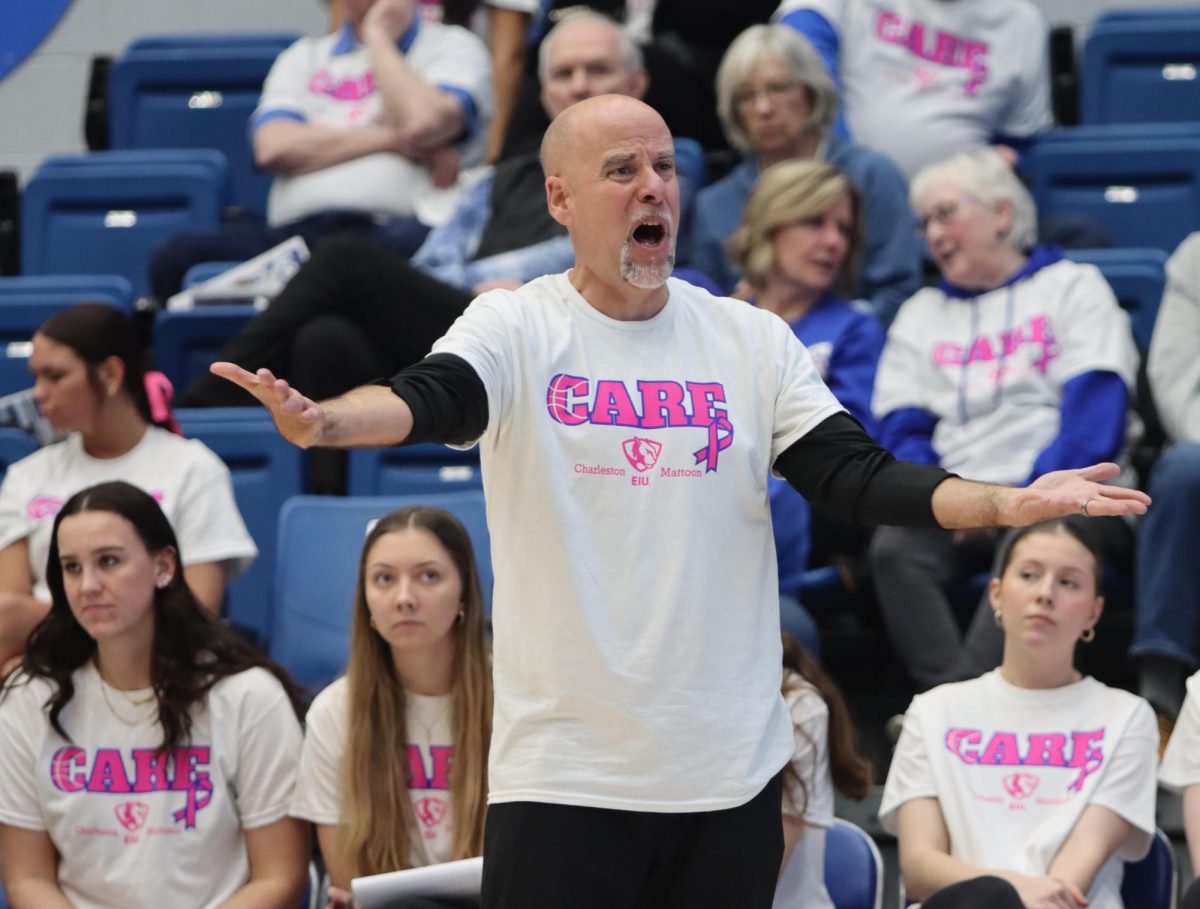Candidate stresses technology’s impact
The first candidate for the new position of associate vice president for academic affairs for technology stressed the importance of faculty in developing online courses in his interview with members of university councils and senates Monday afternoon.
“It is critically important for faculty to learn enough about computer technology classes to have an intelligent voice,” said Glenn S. Everett, director of the Instructional Technology Center at the University of Tennessee-Martin and the first of three candidates for the position.
Everett also said faculty are responsible for the spread of university involvement in technology. “From my experience, word-of-mouth among faculty is the best way for other faculty to get involved.”
The position of associate vice president for academic affairs for technology is a new position at Eastern and will be responsible for leadership in planning and developing technology-enhanced and delivered education. In addition, the new administrator will be in charge of the newly created Center for Academic Technology Support.
Everett said one of the biggest challenges in developing online courses is determining which courses to develop.
The best courses to offer online are those in which a that cover and test on a large amount of material. For that reason, he said humanities classes are not easily transferred online.
“Students and faculty would agree not to completely replace the classroom experience,” he said. “It would more likely wind up with blended courses that are not purely lecture.”
Another problem that Everett mentioned was the misconceptions that students have toward online classes. He said many students believe that less work will be required for online courses, but in fact many require more work. He added that there is a large dropout rate for online courses nationwide.
Observing both the interactions and outcomes of the students involved in technology-enhanced classes is very important for the faculty, he said.
From his experiences, Everett said some students who did not like to speak in the classroom have “blossomed” online. These students were able to express what they had to say without the embarrassment of speaking in front of the class.
Everett said Eastern has an opportunity to step into the nationwide forefront with technological education.
“There are about as many models on how it is done as there are universities using them,” he said. “You can’t put something in place now that will be guaranteed to be the best way five years from now.”












































